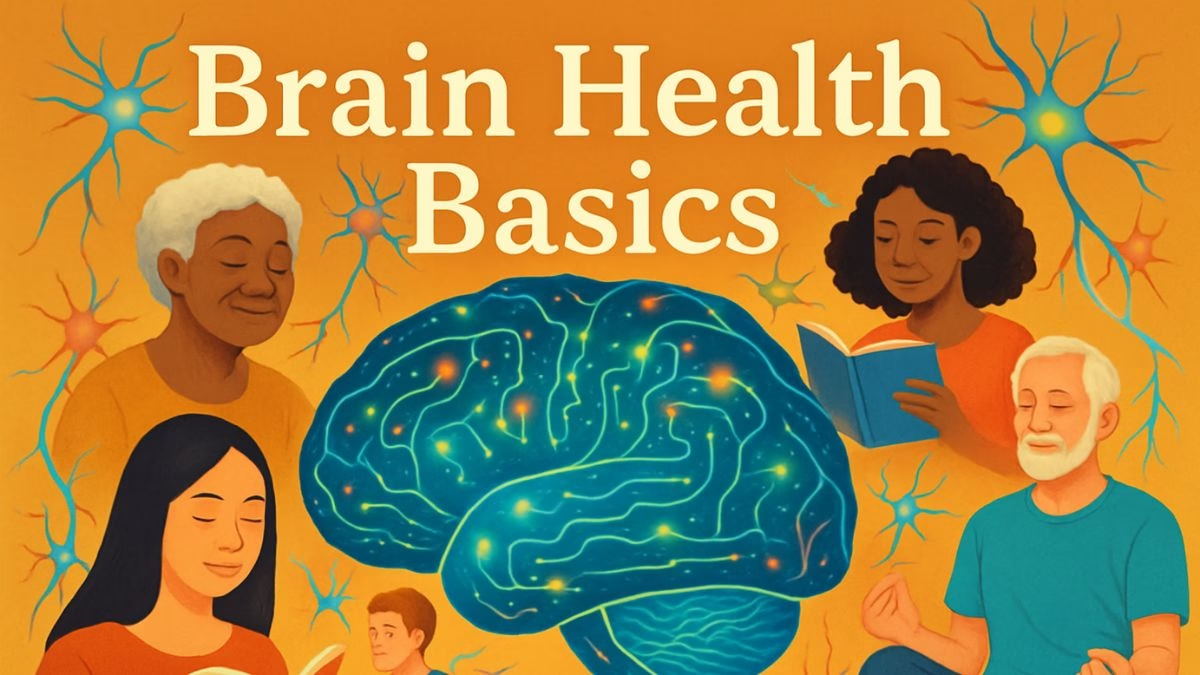Introduction
Welcome! Are you ready to dive into the most fascinating and complex organ you own—your brain? This isn’t just another quiz; it’s an interactive journey designed to demystify the world of brain health. By participating, you’ll not only test your knowledge but actively learn the foundational concepts that everyone should know.
Why is this important? Because understanding the basics of brain health empowers you. It helps you dismantle stigma, support loved ones more effectively, and take better care of your own cognitive and emotional well-being. This quiz will help you grasp what a brain disorder truly is, see the undeniable link between “mental” and “neurological” health, and understand why open, honest conversations are the key to a healthier future for all of us. Let’s get started!
Learning Quiz
This is a learning quiz from English Plus Podcast, in which, you will be able to learn from your mistakes as much as you will learn from the answers you get right because we have added feedback for every single option in the quiz, and to help you choose the right answer if you’re not sure, there are also hints for every single option for every question. So, there’s learning all around this quiz, you can hardly call it quiz anymore! It’s a learning quiz from English Plus Podcast.
Quiz Takeaways | Your Brain, Your Health—Connecting the Dots
Hello and welcome. You’ve just completed a quiz that journeyed through the fundamentals of brain health, and I hope it sparked some new thoughts and questions for you. Now, let’s take a little time to connect the dots and really cement what we’ve learned. For centuries, humanity has treated the brain as a mysterious black box, separate from the rest of the body. We created a strange and artificial wall between illnesses of the “body” and struggles of the “mind.” But today, science and lived experience are tearing down that wall, brick by brick. The central lesson, the one that ties everything together, is this: Brain health is health. It’s that simple, and it’s that profound.
So, what do we really mean when we say “brain disorder”? As we saw in the quiz, it’s not a scary or shameful term. It is a broad, umbrella category for any condition that disrupts the normal functioning of our central nervous system. Think of your brain as the CEO of a massive corporation—your body. It controls everything: logistics (movement), communications (senses and speech), finance (resource management like sleep and hunger), and company culture (your emotions and personality). A brain disorder is anything that disrupts the CEO’s ability to do its job properly. This could be a structural problem, like a tumor or the damage from a stroke—imagine a fire in the CEO’s office. It could be a chemical problem, like in clinical depression, where the communication systems between departments are faulty—imagine the company’s email server is down. Or it could be an electrical problem, like in epilepsy, where a sudden power surge causes chaos across the entire building. Alzheimer’s, anxiety, multiple sclerosis, ADHD, migraines—they are all different manifestations of a disruption in the body’s most critical organ. Understanding this helps us move away from judgment and toward a more practical, medical understanding.
This brings us to one of the most important concepts we explored: the false divide between “neurological” and “mental” health. Historically, we put conditions like epilepsy and Parkinson’s in the “neurological” box, often seen as “real” diseases of the brain. Meanwhile, conditions like depression, anxiety, and schizophrenia were put in the “mental” box, often stigmatized as emotional problems or character flaws. But as we’ve learned, this division makes no sense. It’s all happening in the same organ. Your thoughts and feelings are the product of the same neurons, chemicals, and electrical signals as your movements and memories.
The connection is a two-way street. A “neurological” event like a traumatic brain injury can directly cause “mental” health symptoms like depression or anxiety by damaging the parts of the brain that regulate mood. Conversely, chronic “mental” stress floods the brain with the hormone cortisol, which can physically shrink the hippocampus, a key area for memory—a “neurological” impact. When we finally accept that mental health is brain health, we can see these conditions for what they are: complex medical issues that require compassion, support, and scientific inquiry, not shame and secrecy.
This is precisely why conversation is the most powerful tool we have. Stigma thrives in silence. It’s the fear of being judged, of being seen as weak, of losing your job or your friends, that prevents so many people from taking the first step and saying, “I’m not okay.” Every time we have an open, honest, and educated conversation about brain health, we weaken that stigma. We create an environment where a person struggling with panic attacks feels just as comfortable seeking help as someone with asthma.
Think about the language we use. As we saw, shifting from “he is a schizophrenic” to “he is a person with schizophrenia” is not just about being politically correct. It’s about seeing the person first. We would never define someone by their diabetes; we shouldn’t define them by their brain disorder either. This compassionate language, when used in our daily lives, helps to reframe the entire topic. It turns it from a conversation about “them” into a conversation about “us,” because everyone has a brain, and everyone’s brain health is on a spectrum. None of us are a perfect 100% all the time. We all have days of brain fog, stress, or sadness. Normalizing these struggles is the first step toward recognizing when those struggles cross the line and require professional support.
Finally, let’s talk about hope. The modern understanding of the brain is filled with it. The concept of neuroplasticity—the brain’s ability to change, adapt, and heal—is revolutionary. It tells us that our brains are not fixed from birth. The things we do every day—how we eat, whether we exercise, how much we sleep, who we connect with—are not just good habits; they are active interventions in our own brain health. A healthy diet provides the building blocks for neurotransmitters. Exercise increases blood flow and stimulates the growth of new brain cells. Sleep is when the brain cleans itself and consolidates memories. Social connection fights off the damaging effects of loneliness and stress. This holistic view doesn’t replace the need for medicine or therapy, but it empowers us. It gives us agency over our own well-being.
Your journey to understanding brain health has just begun. By taking this quiz and engaging with these ideas, you’ve already become part of the solution. You are now better equipped to support a friend, to understand a family member, to care for yourself, and to help build a world where the health of our brain is treated with the same importance as the health of our heart. And that is a future worth talking about.










0 Comments